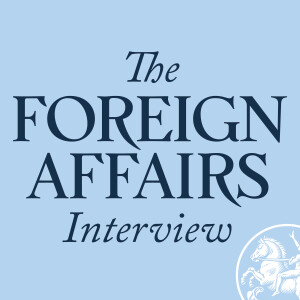Thursday Jan 09, 2025
The United States’ relationship with China has scarcely been so contentious. Over the last several years, the two powers have butted heads over issues including trade and technology, Russia’s war on Ukraine, and Beijing’s belligerence in the South China Sea and the Taiwan Strait. Nicholas Burns has helped oversee Washington’s response to these rising tensions.
Burns has served as U.S. ambassador to China since 2022, the capstone of a four-decade career in the foreign service that has included posts as ambassador to NATO and Greece, State Department undersecretary for political affairs and spokesperson, and on the National Security Council staff on Soviet and Russian affairs. He has been in the room for some of the most consequential moments in recent U.S. foreign policy history: the fall of the Soviet Union, the 9/11 attacks, and now, the intensifying U.S.-Chinese competition.
Two years after his first conversation with editor Dan Kurtz-Phelan, Burns, in his final days as ambassador, looks back on the Biden administration’s approach to managing the relationship at this critical moment—and reflects on the need for diplomacy in the rivalry that may define the twenty-first century.
You can find sources, transcripts, and more episodes of The Foreign Affairs Interview at https://www.foreignaffairs.com/podcasts/foreign-affairs-interview.







